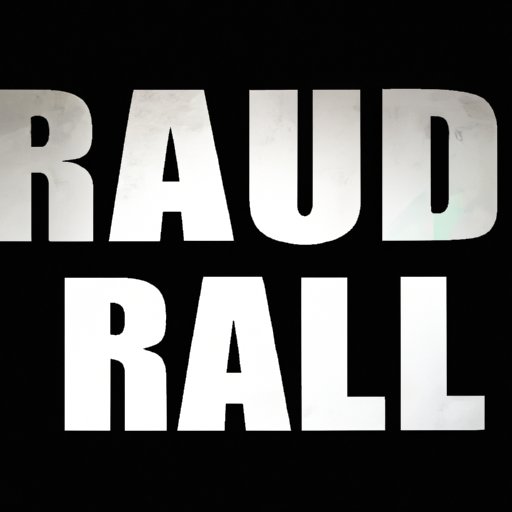
Introduction
If you or someone you know has been arrested, chances are they were required to post bail to secure their release from jail. Bail is a system designed to ensure that the defendant appears in court for trial by requiring them to provide a monetary deposit in exchange for their release from custody. However, many people are left wondering if they will get their bail money back following their court appearance. This article aims to answer your questions and provide you with a comprehensive guide on how to obtain your refund.
Understanding Bail: What You Need to Know About Getting Your Money Back
When a person is arrested and booked into jail, bail is set based on the severity of the crime committed and the defendant’s criminal history. Bail ensures that the defendant appears in court for trial, as the money will be forfeited if they do not show up. The amount of bail varies from state to state and can range from a few hundred dollars to several million dollars.
If the defendant fails to show up in court, their bail money is forfeited and a warrant is issued for their arrest. The bail money is then used to pay for any outstanding fines and fees and may also be used to pay any restitution ordered by the court.
Moreover, to secure the refund of the bail money, it is essential that the defendant shows up in court for their scheduled hearings. Once the trial is over, and the defendant has fulfilled all of their obligations, including paying any fines and completing any community service or jail time, their bail will be returned.
The Truth About Bail Money: How to Secure Your Refund
Getting your bail money back requires fulfilling certain requirements. The first thing you need to do is ensure that the case has been resolved. If the defendant does not show up in court, the court will issue a warrant, and the bail money will be forfeited, making it impossible to get your money back.
If the defendant is found guilty, their bail money may be applied towards their fines, fees, and restitution costs. If there is any remaining amount after these obligations have been satisfied, it will be returned to the person who paid the bail.
To get your bail money back, the person who posted the bail needs to provide documentation to prove that the defendant completed their obligations. This includes proof of completion of any fines, community service, jail time, or other requirements ordered by the court. The process of getting your bail money back may take anywhere from a few weeks to several months.
Don’t Lose Your Bail Money: A Guide to Ensuring a Prompt Return
The process of securing your bail refund can be complicated and may encounter delays, so it is crucial to ensure you follow the required steps to avoid problems. Some essential tips for ensuring a prompt return of your bail money include working closely with your bail agent, providing documentation to prove that the defendant has satisfied their obligations, and keeping detailed records of your interactions with the court and the bail agent.
Fines and fees can also impact the return of your bail money. These obligations must be paid off before the bail money can be returned to the person who posted the bail. It is essential to know how much these fees are and to ensure that they are paid promptly to avoid any delays.
If for some reason you are having trouble getting your bail money back or have not received it within the expected timeframe, it is important to seek out legal advice immediately. An experienced attorney can help you navigate the process and understand your rights.
Behind Bars and Broke: How to Get Your Bail Money Back
Dealing with the financial burden of bail can be incredibly stressful for defendants and their loved ones. Bail can put a significant financial strain on families, and not getting the money back can be devastating. It is important to ensure that you take steps to preserve your financial stability while waiting for your bail money to be returned.
If you are experiencing financial difficulties and unable to afford bail, you may want to consider contacting a bail fund organization. These organizations help people post bail who cannot afford it and offer financial assistance to those in need.
Breaking Down Bail: Everything You Need to Know About Getting Your Money Back
Getting your bail money back can be a complicated process, but it is essential to understand the requirements and take the necessary steps to avoid issues. Ensure that the defendant attends all their court sessions, pays all their obligations and keep careful records. If you are having difficulty getting your bail back, know your rights and seek legal counsel immediately.
Bail Reform: The Fight to Ensure Justice for All and the Return of Bail Money
The current bail system has several flaws, including the disproportionate impact it has on low-income and disadvantaged communities. Bail reform movements across the country are working hard to ensure that everyone is treated fairly when it comes to posting bail. A more efficient system is needed to return bail money promptly. Bail reform is crucial to ensure the return of bail money and to provide justice for all.
Conclusion
In conclusion, understanding the bail system and the requirements for getting your money back is critical. Ensure that you work closely with your bail agent, provide the necessary documentation, and keep detailed records to ensure a prompt refund of your bail money. You can preserve your financial stability by seeking financial assistance from bail funds. The struggle to navigate the current bail system facilitates the need for bail reform. Seek legal advice immediately if you are experiencing delays or having trouble getting your bail money back.




